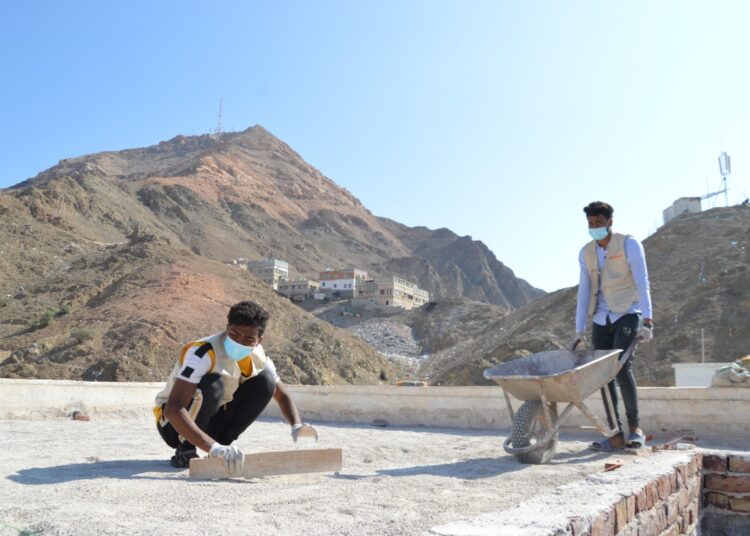The British Council will announced £14m support for 17 new projects to protect heritage at risk, including those at risk from climate change.
The announcement was made at a meeting of the International National Trusts Organisation (INTO) at COP27 in Sharm-El-Sheik where participants will hold discussions under the theme Building Adaptation and Resilience in Sites of Heritage and Culture.
The projects will be funded over two and a half years through the British Council’s Cultural Protection Fund (CPF), in a partnership between the British Council and the Department for Digital, Culture, Media and Sport (DCMS).
Arts Minister Lord Parkinson said: “From the conservation of thirteenth century manuscripts in Gaza, to preserving buildings in Cairo, it is vital we do our utmost to protect precious global heritage at risk due to climate change and conflict.
“I am delighted that DCMS is once again partnering with the British Council to grant a further £14 million to make sure our shared history endures for generations to come.”
Scott McDonald, British Council Chief Executive, said: “As an organisation connecting young people around the world with the UK, the British Council is acutely aware that tacking climate change is one of their top priorities.
“Because of this we have embedded the theme of responding to the threat of climate change across our work in arts, education and the English language around the world. Through the Cultural Protection Fund we can protect the threatened tangible and intangible heritage assets that define humankind, and use this work as an opportunity for mutual cooperation and learning.”
Among the projects receiving funding are:
• Egyptian NGO Megawra will revive and protect two Islamic monuments in the Historic City of Cairo, where increasing temperatures and excessive flooding are causing significant damage to buildings and infrastructure.
• The International National Trusts Organisation are leading a project across six countries in MENA and East Africa that will rehabilitate important built heritage in each country, raise awareness about the impact of climate change and build capacity through knowledge exchange and partnership.
• Twaweza, based in Kenya, will work with local communities to protect the Bajuni dialect of Swahili, through oral traditions and poetry which are at risk of loss due to the impact of climate change on traditional ways of life.
• In Yemen, a project led by Cultural Emergency Response will rehabilitate the Governor’s HQ Complex (former British Residency) in Mukalla.
Stephanie Grant, Director Cultural Protection Fund at the British Council, commented: “This is the fund’s first large grants and multi-year announcements since 2018 and we received an unprecedented level of high-quality proposals.
“There’s a crucial need to protect global heritage against the threats of conflict and climate change. The selected projects represent a diverse range of approaches to protecting cultural heritage, but with a shared motivation to safeguard cultural heritage for future generations, tackle urgent global challenges and deliver positive societal and economic impact for local populations.”
In addition, building on research from its Climate Connection programme, the British Council with the University of Cambridge is funding two 12-month research fellowships on cultural relations and climate action, in partnership with the Indian Institute of Technology, Mumbai, India, the International Centre for Climate Change and Development (ICCCAD), Bangladesh, and the American University of Cairo (AUC), Egypt. This will fund two early-career researchers from the global south to undertake research fellowships in the UK, based at the University of Cambridge and engaging closely with the British Council (both in the UK and in their home countries) throughout the project.
The British Council will also be running the Climate Action in Language Education free online course during COP27, aiming to engage 10,000 teachers in Egypt and thousands more around the world. More than 6,000 English language teachers globally have completed the course, with more than 100,000 English language teachers and learners benefitting from Climate Action in Language Education resources and courses throughout the past year.
Earlier in the week, the UK Foreign Secretary, Rt Hon James Cleverly MP, spoke with young climate activists about action to tackle climate change. The activists, working in different professions and from around the world, shared insight into their initiatives to tackle climate change and to engage other young people in climate action. Many were beneficiaries of the British Council’s Climate Connection programme which was set up in 2020 to tackle climate change through arts and culture, education and English.






Discussion about this post